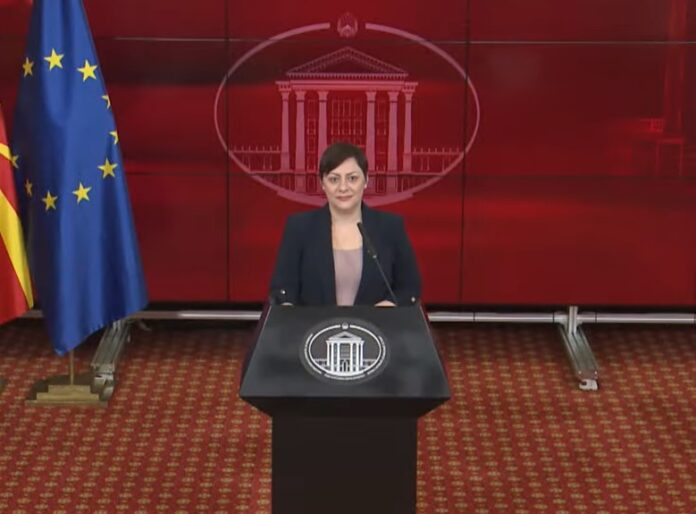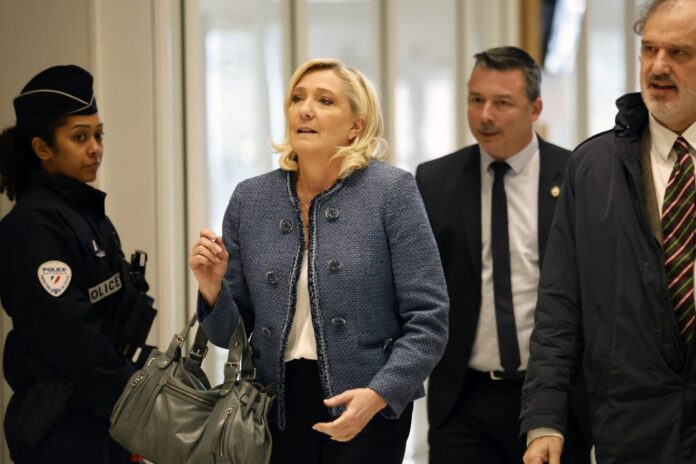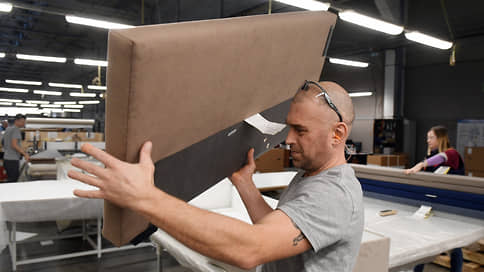Macedonian Aneta Trajkova with significant discoveries in France in the field of regenerative medicine
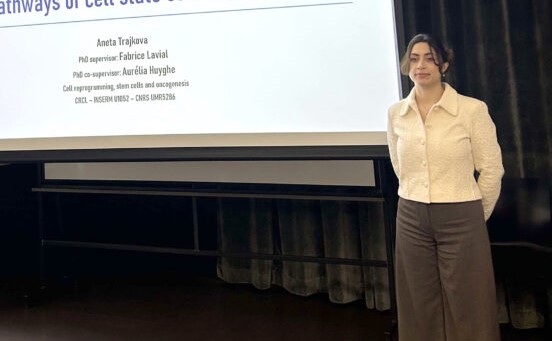
Aneta Trajkova found two genes, key regulators of the cell reprogramming process, turning body cells into stem cells during her study in France, the function of which is promising to develop therapies in the domain of regenerative medicine. Speakingly, our compatriot in his research worked the process of so -called. cell reprogramming. For example, when an embryo is formed, it consists of several cells, which are called stem cells and which are divided and have the capacity to differentiate in any cell from the body of an adult with a specific and individual role, such as a skin cell, eye, heart and so on. Cellular reprogramming is actually modifying a specialized cell, for example a skin cell, to restore its inspective state – a stem cell, and again have the potential to become any other cell in the body…
At the heart of the new discoveries of the domain of biology and medicine
Macedonian Aneta Trajkova from Negotino defended her doctorate entitled « Study of Regulators and Molecular Roads on Cell Conversion » in November 2024 in Lyon, ahead of a six -member international jury, and aroused great interest in the scientific world of this domain. Until recently, a postdoctorate was engaged in the same area and with the same team in Lyon, where he worked in parallel on the announcement of his latest publication. Currently considering work offers in Europe in the research part, but at the same time applied medicine where it could be in close contact with patients to see direct benefits in patients from various therapies in the field of genetics, which is her dream since the beginning of studies in France. Macedonia has always been and will be in her heart. There would be no better satisfaction for her than the opportunity to convey the knowledge gained in our country and contribute to the Macedonian research activity.
In her education Aneta has invested for five years to be able to gain all the knowledge she needed for this doctorate. She begins her story by highlighting the great love of the natural sciences.
– I didn’t want to choose exactly one science, so I was looking for my further studies to be a mix of biology, math, physics and informatics. Such a direction called Life Sciences existed in France. I studied in the French class in the Negotin Gymnasium and I owned all the elements to study this direction, which did not exist in Macedonia 10 years ago. Then I started graduate studies at Montpellier II University where in the last year of studies I had special affinities for molecular and cell biology and at the same time it was the direction I specialized in graduate studies. I graduated in Montpellier with the highest average in the generation. Then for Masters Degree in Molecular and Cell Biology I enrolled in Lyon, one of the best and most selective directions of universities called genetics and cell pathologies. I finished the Masters Degree at the University of Claude Bernard I as a student of the generation – says Aneta Trajkova.
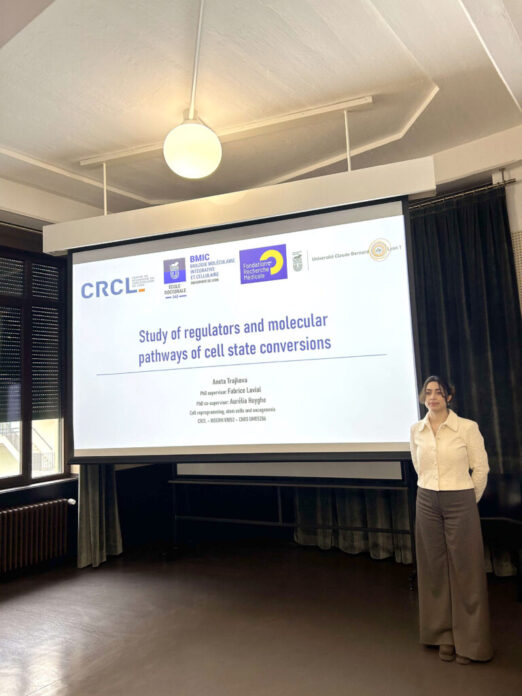
Due to the desire to contribute to society in the field of medicine, with innovation in science, especially in the field of genetics and regenerative medicine where it will work with potential therapies that will have a direct impact on patients, Aneta Trajkova is determined to do so through research and study.
– In France, the doctorate is presented as a contract of employment during which you are conducting a research activity in the laboratory of the scientific institute, where you do experiments, processing data and presenting them. So I competed in the state -owned finance competitions that would support my research activity for the four years of the doctorate. I managed to be a laureate of two local in Lyon and state -owned supported by the Fondation De Recherche Medicale – FRM). What is important to point out is that I had the opportunity to work in one of the most powerful research institutes for the fight against cancer in France, Cancer (« Cancer Research Center of Lyon », within the Leon Berar Cancer Hospital.
I have worked specifically on the topic of regenerative medicine and oncogenesis in the Fabrice Lavial team, a renowned scientist in this area and at the same time laureate of the Prize in the field of « Impulsanes ». During my research, I studied the process of cell reprogramming, for example when an embryo is formed, it consists of several cells, called stem cells and which are divided and have the capacity to differentiate in any cell from the body of an adult, an adult, and an individual, and individual. Cellular reprogramming is actually modifying a specialized cell, for example a skin cell, to restore its insignificant state – a stem cell, and again have the potential to become any other cell from the body.
This process is extremely important in the domain of regenerative medicine where one organ is impaired and surrounding cells cannot compensate for the loss and their functionality (neurodegenerative diseases, infarction, injuries), so that the newly attained stem cells obtained from any other cells can be contributed.
In Aneta’s words, the process of cell reprogramming is still long and ineffective and needs in -depth knowledge to be implemented in therapies without side effects.
– One of those side effects can also be carcinogenesis, ie deviation of these cells if the process is not rigorously conducted. So my task was to study the processes of cell reprogramming and carcinogenesis, to determine the common, and at the same time the individual genes needed for their regulation. That would find sure ways to improve cell reprogramming without induction of cell cancer, but also find cancer formation regulators, which could be the target of therapy. For the first time, I characterized the common processes that occur in the cells during both processes and identified two genes that regulate the same. Then I studied all the goals of these genes and found the « hot spots » where we could act on them.
During my four -year research activity I was co -authored two publications in Nature Bayoloji and Trends in Sel Bayoloji. The latest publication I am the first author and which should be published this year. During my doctorate I also taught at the University of Claude Berar Lyon I, I was holding exercise for graduate students and trained students to work in the laboratory. I would also highlight my presence at the International Congress as « Cold Spring Harbor » in Long Island New York and « International Sossiti For Fort Stam Risce » in Hamburg – Germany – she says.
Asked how difficult it was the road to achieving these important scientific successes that her family and equally Kavadarci and Negotino is most proud of, because her mother is Kavadarci, and her father is a non -Negotrian she replied:
« Doctorate is one of the more difficult moments in the life of a scientist. It requires great endurance and persistence. It requires that you can face the failure of the experiments in most of the time and to look for which part of the very much process can be optimized for a better answer to our scientific questions. Which are priceless, so it is uninterrupted and at weekends And a human adventure during which we cooperate with our responsible, but also with the remaining team, we have the opportunity to exchange experience with very renowned scientists and we are at the heart of new discoveries in the domain of biology and medicine. «

